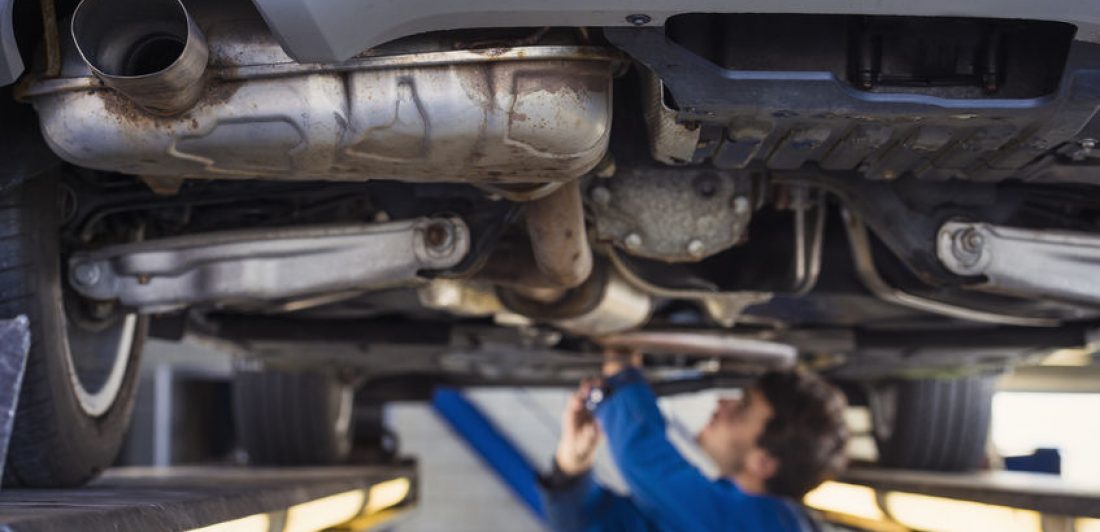Being involved in a car accident is stressful as it is. It can be even more stressful when your vehicle has suffered damage and you urgently need to get repairs done. It doesn’t help, especially when you are being persuaded by the insurance company to going to a specific repair shop. However, insurance companies may be trying to mislead you for their benefit, and you have a choice to go to any repair shop of your choice.
How may car insurance companies mislead crash victims?
Although it isn’t wrong for car insurances to recommend a repair shop, they shouldn’t pressure you into a choice. It is important to remember that insurance companies are businesses at the end of the day, and it is in their best interest to benefit themselves before anything. Therefore, if an insurance company tells you that they will not cover damage to your car unless you use an in-network mechanic, you have a right to seek the mechanic of your choice.
If you’re receiving pushback from your provider, it’s worth double-checking your rights to ensure that they’re not breaking the law by misleading you into doing what they want you to do.
What might be the benefits of using the recommended repair shop from your insurance?
The recommended repair shop from your insurer has a relationship established with the insurance company. Typically, the insurance company prefers you to go to their recommendation because it will be cheaper and easier for the provider.
On the good side, body shops recommended by the insurance company are usually reputable establishments that guarantee their work for the car’s lifetime. Some of the benefits of using the insurer’s recommendation are:
- Faster Service: If you plan on using the recommended repair shop, the process will go smoother and faster. More than likely, the repair shop has a running account with the body shop they send you to, so repairs, paperwork, and payment will all be faster. In addition, if the shop is recommended, the check will most likely go straight to the shop.
- Lifetime warranty: More than likely, a mechanic or body shop in your insurance network will provide good service. Although lifetime warranties are the standard for insurance-recommended repair shops, you should confirm the warranty before the repair begins.
- In-network body shop: If you go with a recommended body shop within the insurer’s network, it has the benefit that it can stretch across the country. This is beneficial if you are in another state and repairs fail. The insurer can direct you to another body shop in-network that’s close by.
What might be the downsides of using a recommended insurance-preferred repair shop?
Although your insurance company may have suggestions of “in-network” repair shops, you have a right to go against their suggestion and look for a mechanic of your choice. Although it may seem simpler to use an insurer-preferred body shop, it isn’t necessarily the best plan.
Recommended body shops usually have the insurer’s best interests in mind as the priority, such as saving them money. Some of the issues that may come up are:
- Unfamiliar mechanic: If you have a relationship with a mechanic, that mechanic will make sure to do the best job on the repairs. If you go with the repair shop recommended by your insurer, then a mechanic who has never worked on your car will handle the repairs. Even if the mechanic is good, you run the risk of not having the same experience as a mechanic who is already familiar with your vehicle and may delay repairs.
- Shoddy repairs: It is important to keep in mind that the body shop recommended by the insurer may try to fix your car by the most cost-effective means possible.
- Negotiating required: Using a repair shop outside your insurer’s network may require you to do some extra negotiating, but you will ensure that all your repairs are done correctly. Although using recommendations may save you time by not having to handle the paperwork and verifying costs (because your insurer will take care of this), the insurer may want to downplay the damage to your car to save money.
How to choose the right auto repair shop for you
- Get recommendations from friends and family members. Ask the people that you trust the most if they have any recommendations for a repair shop that has done good work for them.
- Do your homework. A great tip to keep in mind is to use consumer-review websites such as Yelp to see what other consumers are saying about the repair shops that you’re considering. Another good source of information is checking your local Better Business Bureau. If you see that there are many complaints, you may want to consider going somewhere else.
- Get several estimates. You won’t know to what extent you’ll need repair. However, it might be in your best interest to get in contact with other repair shops. Just don’t take your car back on the highway until it’s completely repaired and safe to drive.
- Check for cleanliness. According to the National Institute for Automotive Service Excellence, they recommend finding a tidy, well-organized shop with modern equipment.
- Follow your instincts and go with a repair shop that you trust. Find a repair shop that you trust. If you have a weird feeling about a shop for any reason. don’t use it. There are so many options to choose from. Don’t settle.
What part of my auto insurance covers the auto shop cost?
Car insurance doesn’t cover the cost of regular repairs or maintenance. If you have auto insurance, more specifically collision and comprehensive coverage, it pays for the repairs for your damaged car due to a car accident or natural disaster.
Having both comprehensive and collision is considered “full coverage” and may be worthwhile for you depending on the type of car that you have. These coverages are all different from liability insurance, which covers damages to another person’s car or property that result from an accident you caused.
What am I compensated for by third-party claims?
You are entitled to all costs and expenses caused by the negligence of the at-fault party. Those expenses may include:
- All necessary repairs to restore your vehicle to its pre-damage appearance, safety and function.
- Payment for any out-of-pocket expenses such as police reports requested by the insurance company, dealing with the claim representative, mileage and time expenses to obtain repair estimates, body shop, etc.
- Compensation for all medical bills associated with any injuries sustained in the accident, required services, lost wages, pain & suffering.
At The Carlson Law Firm, we can help
Being involved in a car accident is stressful. On top of that, you might have to deal with the at-fault attorneys and insurance company. Let us help you out and deal with these parties ourselves. Contact us today for a free consultation to speak to one of our car accident attorneys.





